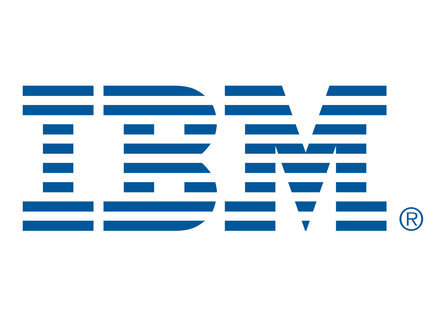IBM
IBM recently announced with the White House a new IBM-led effort to make an unprecedented amount of computing power—more than 400 petaflops—available to help government and academic researchers better understand COVID-19, its treatments and potential cures. The collaboration involves the U.S. Department of Energy, MIT and Rensselaer Polytechnic Institute, as well as six national labs and other technology providers, and the pooled resources will create the most powerful high -performance computing platform on the planet, all devoted to accelerating scientific discovery to fight COVID-19. According to IBM, it’s like a Manhattan Project for attacking the coronavirus, and IBM is proud to have convened this critical effort.
And there’s great potential for supercomputers to make a meaningful difference in this fight. Perhaps you’re already seen that IBM Summit, the world’s fastest supercomputer, is already helping researchers speedily find drug compounds that could hold promise in fighting the coronavirus. Out of more than 8,000 potential drug combinations that might work, Summit has helped researchers at Oak Ridge National Laboratory and the University of Tennessee identify 77 most likely candidates, and IBM data scientists are working with the DOE to speed the search.
Putting trusted data and insights at the fingertips of citizens and health experts
Trusted data is at the heart of IBM’s newly-launched Watson Assistant for Citizens “chatbots,” which bring together advanced analytics and speech recognition capabilities to help government agencies and other organizations deal with an unprecedented flood of requests from citizens. The solution puts years of experience in AI and natural language processing technologies to work in creating virtual assistants that pool and understand trusted data from external sources — including health guidance from national agencies and local sources such as links to school closings, regional health news, insight on unemployment claims processes, and documents on government websites — to automate responses to frequently asked questions about COVID-19 that come in via a phone call or text, and to get that information into the hands of citizens in seconds or minutes, not hours. IBM has provided this IBM Cloud-based technology to health agencies and governments in Europe and the US.
Putting technology in the hands of the first responders
In mid-March, IBM unveiled a program for independent developers to work on COVID-19 issues. The “Call For Code” program has brought thousands of developers together on projects like helping first responders in California fires and with rebuilding Puerto Rico after the hurricane; more than 210,000 participants from 165 nations have taken part in Call for Code and created more than 8,000 applications focused on natural disaster preparedness and relief.
Now, IBM is steering resources to marshal the “Call for Code Global Challenge” to focus on solutions aimed at COVID-19…. aimed specifically at improving communication for medical teams and emergency services, and improving remote learning, since millions of students around the world are now in virtual classrooms. Working with IBM technical experts, it’s all going to be built on open source software and powered by Watson, with data from The Weather Company.
Helping virtual education around the globe
In Europe, 10 countries (and more than 1200 schools) are receiving support from a partnership between IBM and Cisco to implement distance learning tools and curriculum, enabled in part by the volunteer efforts of 3,000 IBMers. More than a million students are getting access to their studies, as well as a special curriculum that allows students to earn digital badges that can help them qualify for jobs. This week IBM began a similar effort across Latin America, and is working with educators in the United States as well, including in New York City, where IBM is helping 300,000 city students access their lessons.
And there’s more…
Early on, IBM’s Watson Health unit made the IBM Clinical Development system available without charge to national health agencies to help accelerate the development of drug treatments — it’s technology used by pharma companies to reduce the time and cost of clinical trials by centralizing and organizing clinical trial details, and provides access to clinical trial data from any web-enabled device. The IBM software was first offered to Chinese health officials, and now is being provided to a wider network of national health agencies.
IBM’s World Community Grid launched a crowdsourcing project with Scripps Research to tap the spare computing power on our personal computers to screen compounds that might be utilized to treat COVID-19. To help Scripps conduct virtual experiments that require the processing of an immense amount of data, anyone around the world with a computer or laptop can download a World Community Grid app and “donate” surplus computing power when the devices are idle. This “virtual supercomputing” effort complements the HPC Consortium that IBM helped launch in partnership with the White House, creating a platform that anyone can contribute to.
Even simpler things are important now. IBM’s senior exec in California located and donated 15,000 medical masks to the Silicon Valley Medical Center Foundation, and IBM engineers in Argentina have recruited hundreds from across the country to design and print 3-D masks, with the goal to create 48,000 masks at a fraction of the cost of buying them.




